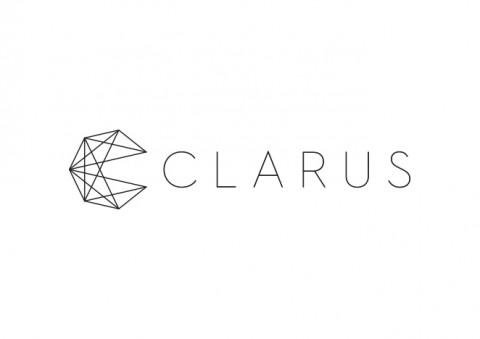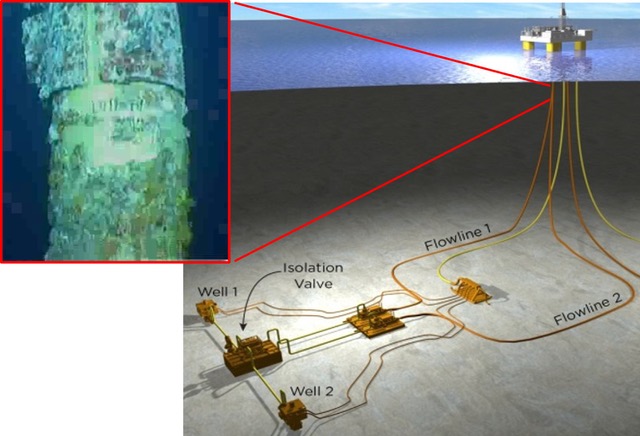Clarus Subsea Integrity ‘s iCUE Digital Anomaly Detection app aims to improve asset inspection and cut costs

Dharmik Vadel of Clarus Subsea Integrity
Clarus Subsea Integrity, an Acteon company that provides subsea integrity engineering services, has introduced the iCUE Digital Anomaly Detection app. This new technology aims to provide rapid, accurate detection of anomalies by reviewing inspection video footage of subsea assets. It is the latest addition to the company’s Digital Integrity Management Services portfolio.
Drawing upon 14 years of experience in subsea integrity management services and its vast knowledge of subsea anomaly detection, monitoring and remediation, Clarus is uniquely positioned to provide this game-changing technology. Although there are apps on the market that purport to detect anomalies, the iCUE App is different.
“What sets it apart is that the development was led by integrity engineers experienced in offshore inspections with in-depth knowledge of the actual assets and equipment that the app is trained to examine,” said Dharmik Vadel, vice president of Clarus Subsea Integrity.
“Not only does the Clarus iCUE design team know how these systems operate and what they were designed to do, they have the domain expertise in equipment degradation mechanisms and defect trending, they know which defects pose the greatest risks. Armed with this knowledge, the iCUE app draws upon a solid foundation of detection data that the others don’t. It is truly in a class of its own.”
Anomalies detected ‘ 10 times faster’ than manual review
 By using the App to assess footage of subsea risers, pipelines or moorings, for example, operators immediately receive a more accurate account of conditions that might otherwise go undetected. In addition, the speed at which it analyses footage and identifies anomalies is at least 10 times faster than manual review, which is significant when assessing whether an asset is fit for continued service or requires attention.
By using the App to assess footage of subsea risers, pipelines or moorings, for example, operators immediately receive a more accurate account of conditions that might otherwise go undetected. In addition, the speed at which it analyses footage and identifies anomalies is at least 10 times faster than manual review, which is significant when assessing whether an asset is fit for continued service or requires attention.
To achieve this, the App automatically carries out an engineering assessment of the inspection footage. The App is based on machine learning, and draws upon image analysis technologies. Clarus trained it with a machine-learning algorithm to accurately qualify an anomaly by using a structured data set of positive examples of anomalies.
Reducing unknowns improves asset risk profile
The capabilities of this technology are striking, offering meaningful longterm benefits. Using the App to screen footage to identify and characterise anomalies reduces the number of unknowns. As a result, the risk profile of the asset is improved by making it possible to positively confirm its integrity or develop a plan to mitigate identified anomalies.
Integrity managers can also use it to trend anomalies from multiple inspections conducted on an individual asset field life. This is useful when considering a possible extension for an asset that is approaching the end of its original design life. Armed with more accurate detection reports, they are fully apprised as to the extent, nature and severity of anomalies to determine whether they must be addressed immediately, require ongoing monitoring or remediation before qualifying the asset for life extension.
Lowering inspection costs, improving inspection quality
Conducting efficient, cost-effective inspections depends upon how swiftly they’re executed. Because the App is designed to conduct anomaly detection screening following inspection data gathering, it’s a completely separate operation.
This means that inspections, whether conducted by remotely-operated vehicles or autonomous unmanned vehicles (ROVs and AUVs), focus solely upon capturing accurate video data of subsea equipment. As a result, this phase is completed faster, reducing time and expense. Given that inspection video is screened automatically, the App essentially lowers the time and expense typically required.
“Cutting the cost of detecting anomalies in subsea assets is a vital element of Acteon’s strategy to reduce overall ownership costs by 30%,” said Paul Alcock, executive vice president of Acteon, parent company of Clarus Subsea Integrity. “The introduction of the Clarus anomaly detection App is one of many planned key steps forward in helping our clients realise significant benefits, financially and operationally.”

The new iCUE Digital Anomaly Detection app rapidly pinpoints anomalies in subsea assets by conducting an engineering assessment of inspection footage
While operators have historically inspected subsea assets, engineering assessment of inspection videos is the exception, not the rule. “This enhanced capability bodes well for integrity purposes,” said Vadel. “The more useful tools we provide managers to help formulate an accurate understanding of asset conditions, the more effective their integrity programs and ability to maintain production. The iCUE App is one of those tools that will play a critical role in making that a reality.”
Looking ahead
Acteon is firmly committed to developing a full-scale production level Anomaly Detection App. This App will be capable of detecting anomalies in real time as video inspection data is gathered subsea. To this end, Clarus has already produced one Proof of Concept App for a common subsea anomaly type, and plans to finalise a second by Summer 2018. Clarus is demonstrating the iCUE App, which automatically detects missing riser strakes and fairings while reviewing riser inspection footage
Comment on this article below or via Twitter @IoTGN
